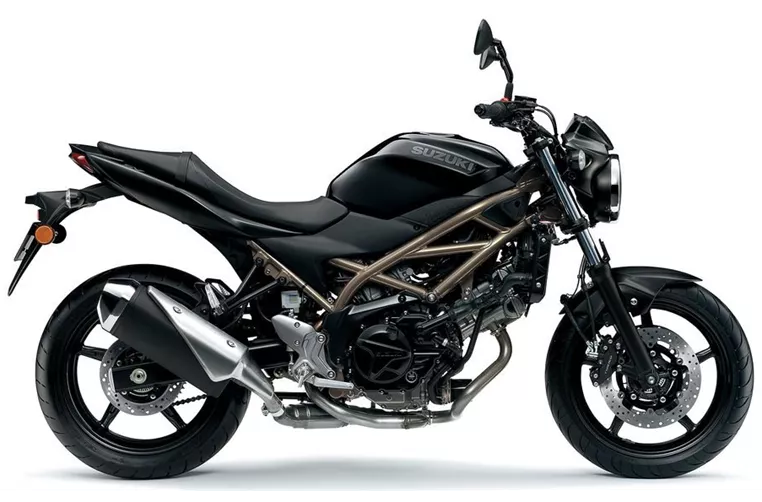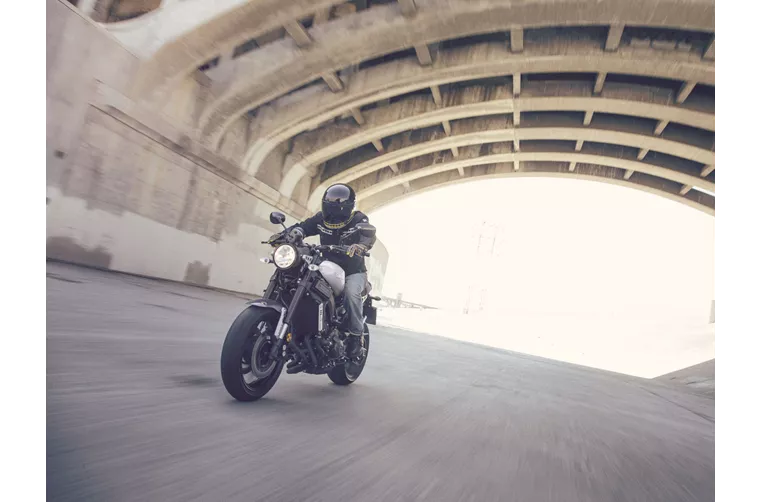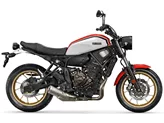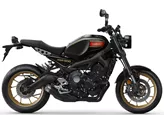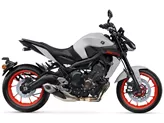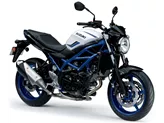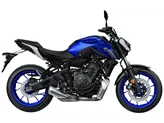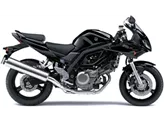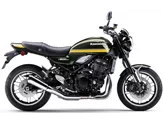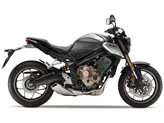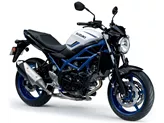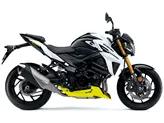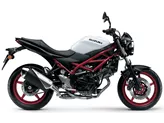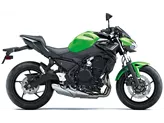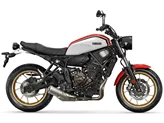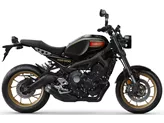Suzuki SV 650 2021 vs. Yamaha XSR900 2018
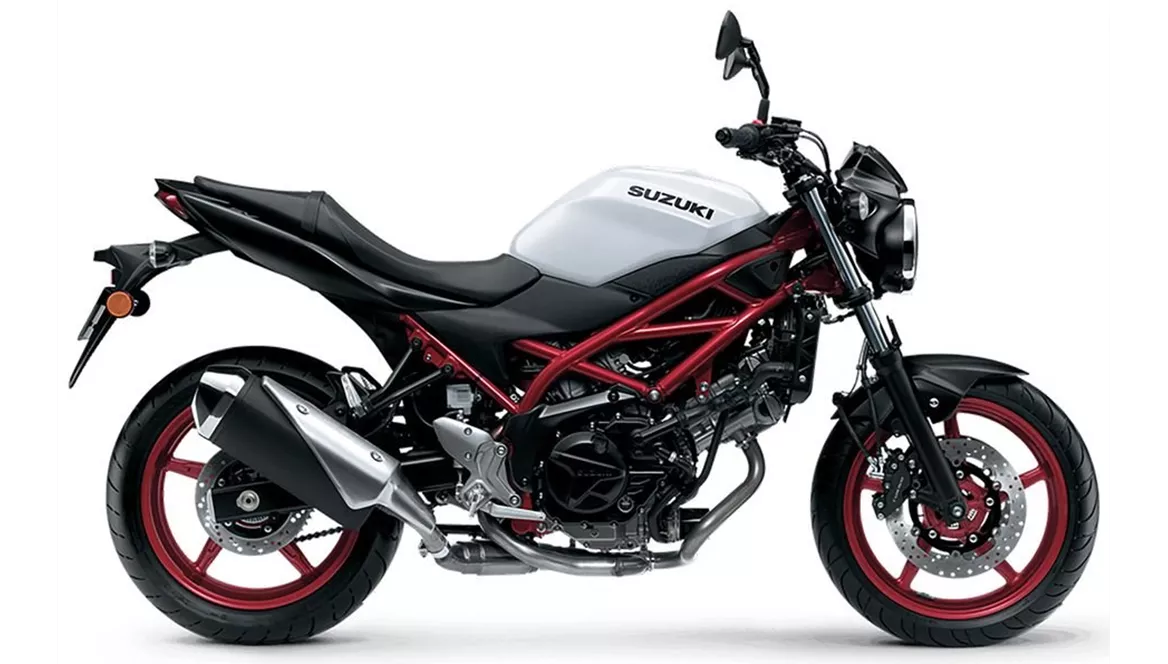
Suzuki SV 650 2021
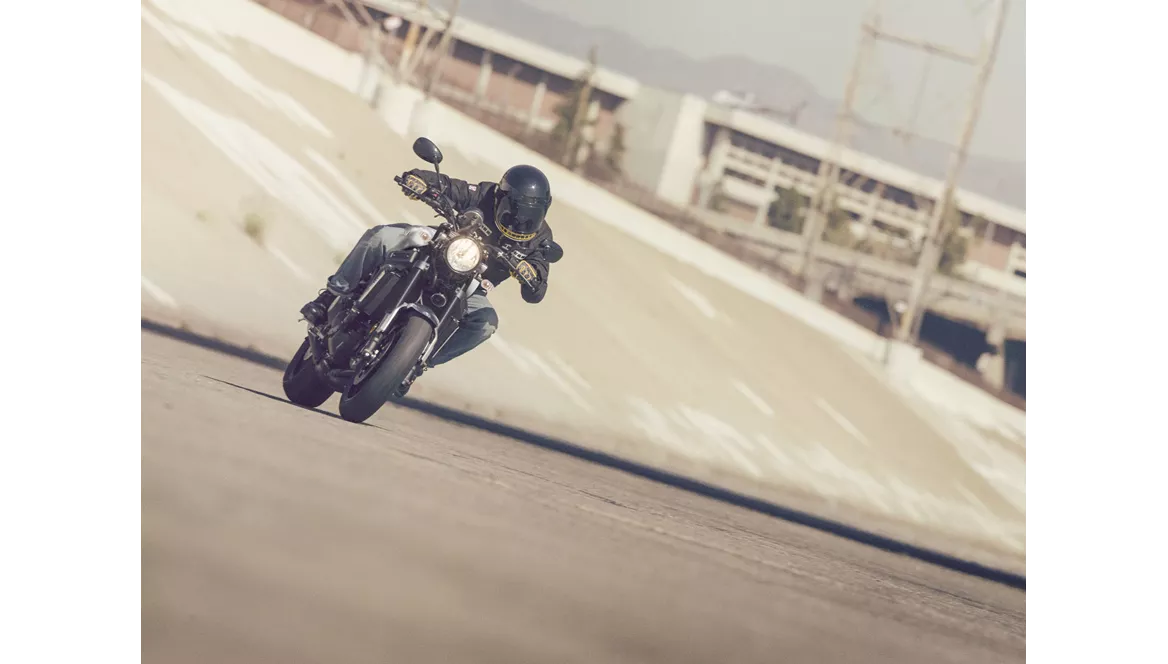
Yamaha XSR900 2018
Pregled - Suzuki SV 650 2021 vs Yamaha XSR900 2018
When comparing the Suzuki SV 650 2021 and the Yamaha XSR900 2018, there are several factors to consider.
In terms of engine and drive train, the Suzuki SV 650 2021 has a V2 engine with 73 HP and 64 Nm of torque, while the Yamaha XSR900 2018 has an in-line engine with 115 HP and 87.5 Nm of torque. The Suzuki has a displacement of 645ccm and 2 cylinders, while the Yamaha has a displacement of 847ccm and 3 cylinders. Both bikes have liquid cooling.
In terms of suspension, both bikes have a swing arm rear suspension with a monoshock. However, the Suzuki has a telescopic fork front suspension, while the Yamaha has an upside-down telescopic fork front suspension.
In terms of chassis, the Suzuki has a steel frame, while the Yamaha has an aluminum frame. The Suzuki's frame type is tubular, while the Yamaha's frame type is twin tube.
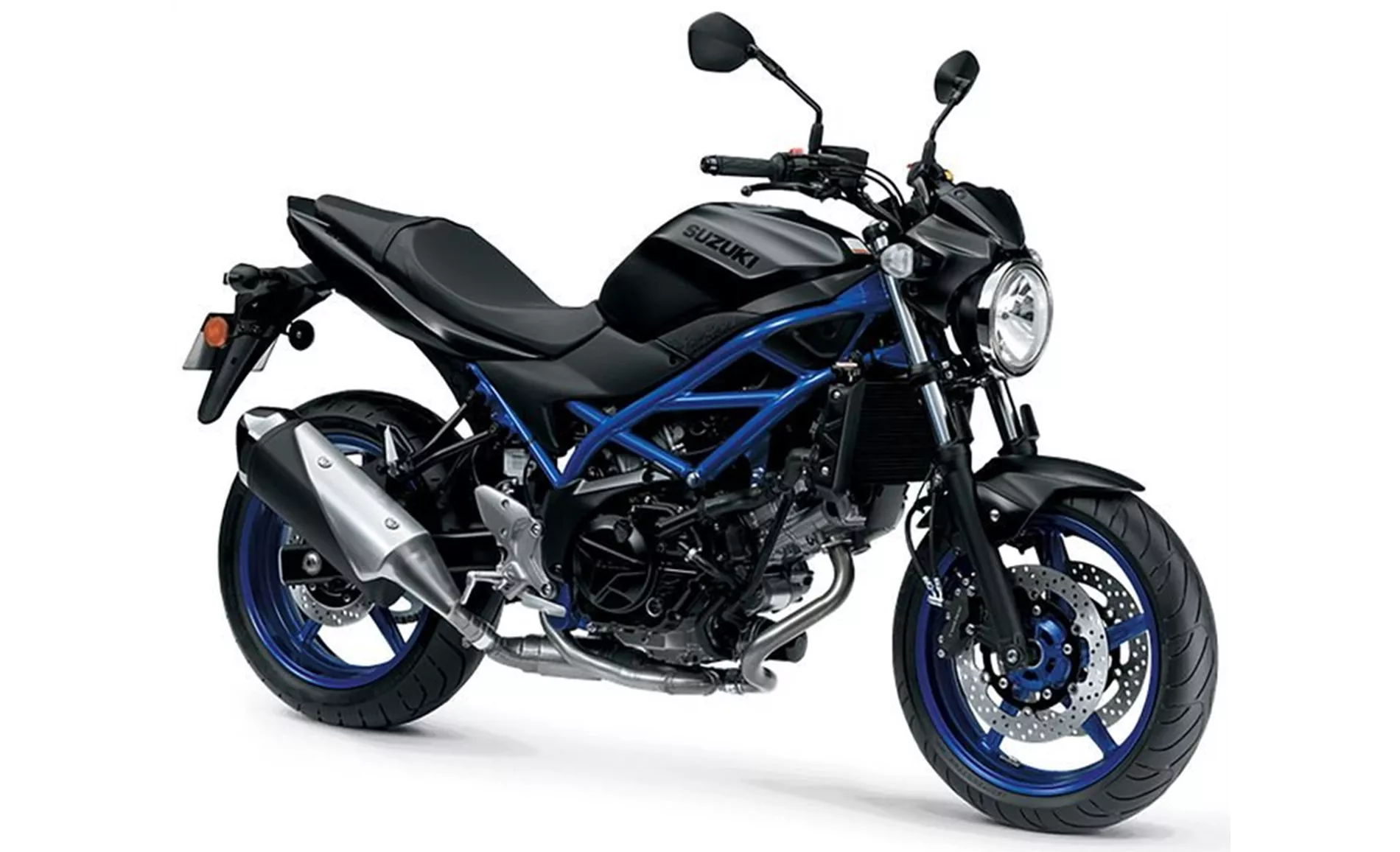
Suzuki SV 650 2021
Both bikes have double disk front brakes, with the Suzuki having a diameter of 290mm and the Yamaha having a diameter of 298mm.
Both bikes have ABS as an advanced rider assistance system.
In terms of dimensions and weights, the Suzuki has a front tire width of 120mm and a rear tire width of 160mm, while the Yamaha has a front tire width of 120mm and a rear tire width of 180mm. Both bikes have a front tire diameter of 17 inches and a rear tire diameter of 17 inches. The Suzuki has a wheelbase of 1445mm, while the Yamaha has a wheelbase of 1440mm. The seat height of the Suzuki is 785mm, while the seat height of the Yamaha is 815mm. The kerb weight of the Suzuki with ABS is 200kg, while the kerb weight of the Yamaha with ABS is 191kg. Both bikes have a fuel tank capacity of around 14 liters.
Now, let's discuss the strengths and weaknesses of each bike.
The Suzuki SV 650 2021 has a confident V2 powerplant with character, providing a unique riding experience. Its stable chassis and comfortable seating position make it easy to handle. Additionally, the timeless look of the bike adds to its appeal.
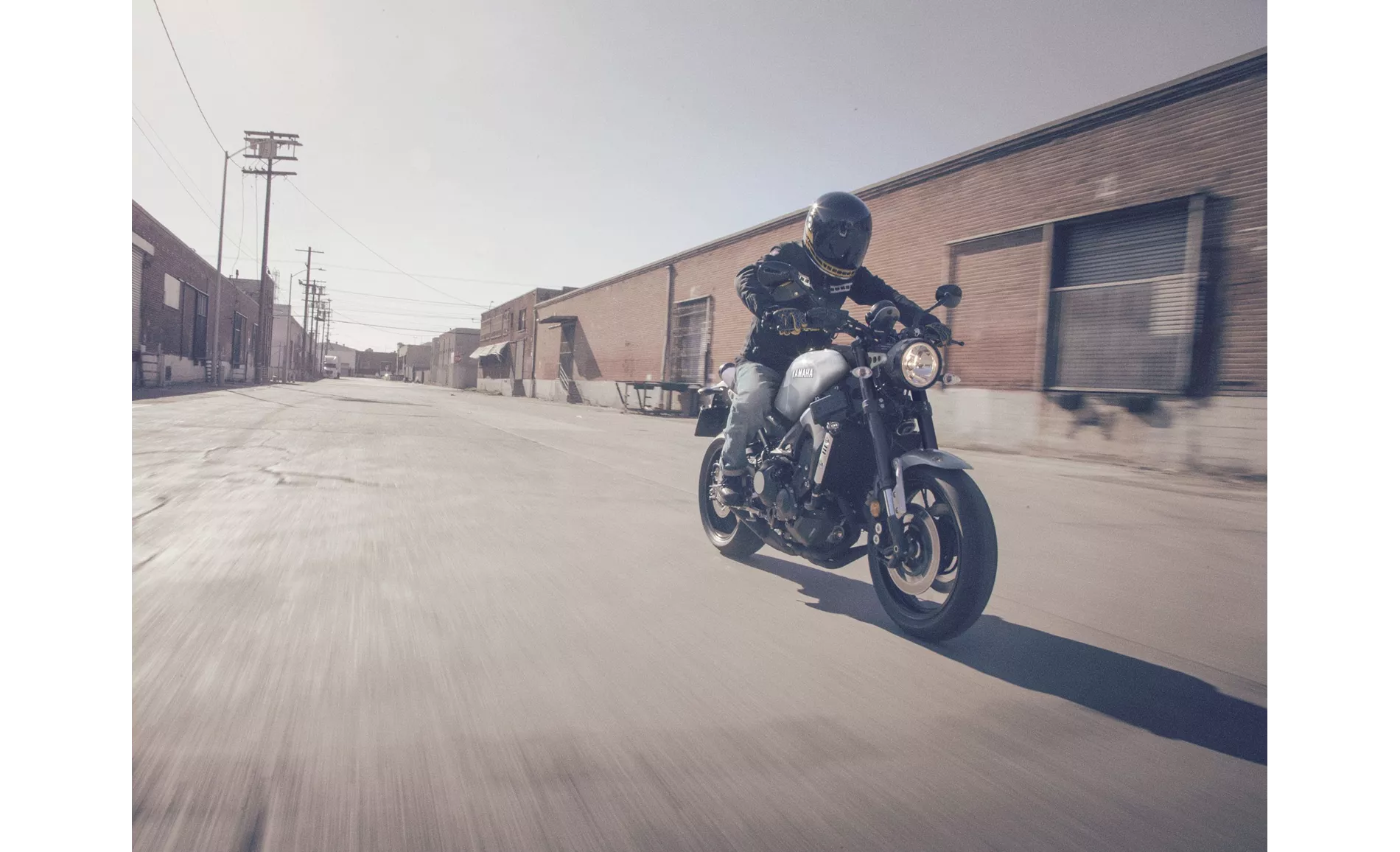
Yamaha XSR900 2018
On the other hand, the Yamaha XSR900 2018 has an extremely sporty and rev-happy engine, delivering impressive performance. The bike also boasts excellent brakes, ensuring reliable stopping power. The riding experience on the XSR900 is on par with other naked bikes, and the seating position is pleasant. Furthermore, the high-quality workmanship and price-performance ratio of the Yamaha make it an attractive option.
However, the Suzuki SV 650 2021 does have some weaknesses. The brake requires manual force, which may be a drawback for some riders. Additionally, the bike lacks electronic features apart from ABS, and the readability of the instruments is only moderate.
Similarly, the Yamaha XSR900 2018 has a few weaknesses. The bike's engine response can be almost too direct, which may require some getting used to. Additionally, while the retro style of the XSR900 is appealing, it may not be thought through to the last detail.
In conclusion, both the Suzuki SV 650 2021 and the Yamaha XSR900 2018 have their own strengths and weaknesses. The Suzuki offers a confident V2 engine and stable chassis, while the Yamaha provides an extremely sporty engine and excellent brakes. Ultimately, the choice between the two will depend on the rider's preferences and priorities.
Tehničke specifikacije Suzuki SV 650 2021 u odnosu na Yamaha XSR900 2018
Prednosti i nedostaci u odnosu na
Prednosti i nedostaci u odnosu na
Suzuki SV 650 2021
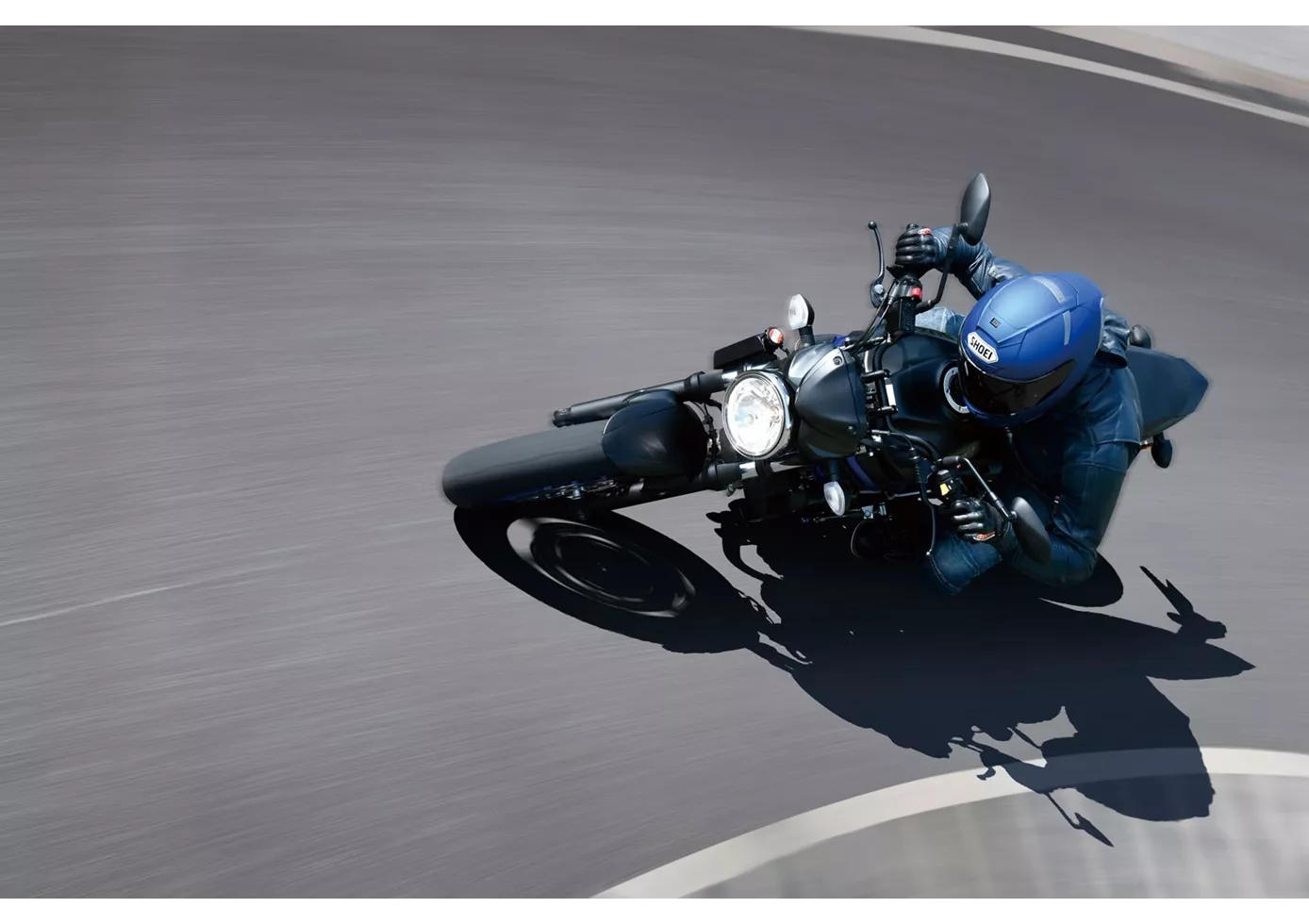
Not much has changed on the Suzuki SV 650 compared to its predecessor, five years ago. The engine has been updated to Euro5 and is now even more mature, which fits in perfectly with the rest of the package. The SV 650 doesn't want to scare anyone, especially beginners. The chassis makes a solid, unagitated impression, the brakes require a lot of manual force to prevent unexpected overbraking. The look is timeless on the one hand, but on the other hand some components are really a bit outdated. On the other hand, the price is fair, as usual for Suzuki.
Yamaha XSR900 2018
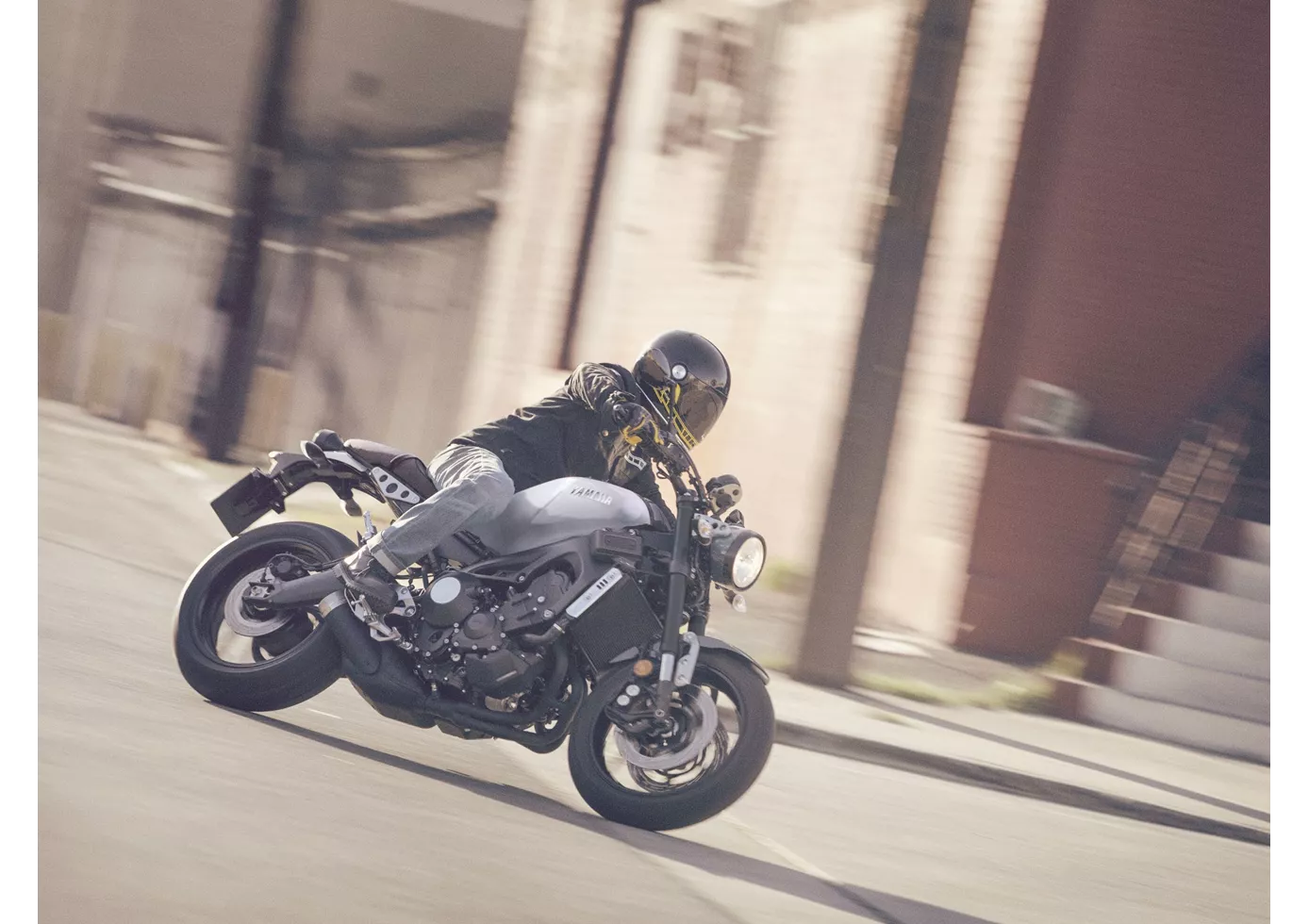
The Yamaha XSR900 is a classic optical illusion - with its round headlight, angular tank and attached tail light, it clearly passes for a retro bike. But it's no coincidence that the performance is reminiscent of the potent mid-range naked bike Yamaha MT-09, which is the extremely sporty basis for the XSR900. So the engine is a blast and the brakes are appropriately venomous. Fortunately, the engineers didn't overdo it with the chassis, the XSR900 offers sufficient comfort and the upright riding position is more comfortable than the powerful engine would lead one to expect. All in all, the XSR900 is one of the sportiest models among the retro bikes.
Usporedba cijena Prosječna tržišna cijena Suzuki SV 650 vs Yamaha XSR900
There are a few key differences between a Suzuki SV 650 2021 and a Yamaha XSR900 2018. In terms of price, the actual average price of a Yamaha XSR900 2018 is about 31% higher. A Suzuki SV 650 2021 experiences a loss of 130 USD in one year and 520 USD in two years of ownership. This is offset by a loss of 180 USD and 120 USD for a Yamaha XSR900 2018. Compared to Yamaha XSR900 2018 there are more Suzuki SV 650 2021 bikes available on the 1000PS.de Marketplace, specifically 13 compared to 4. It takes less time to sell a Suzuki SV 650 with 111 days compared to 123 days for a Yamaha XSR900. Since model year 2005 1000PS.de editors have written 25 reviews for the Suzuki SV 650 and 30 reviews for the Yamaha XSR900 since model year 2016. The first review for the Suzuki SV 650 was published on 9/26/2008 and now has more than 14,200 views. This compares to more than 17,600 views for the first review on Yamaha XSR900 published on 11/25/2015.
